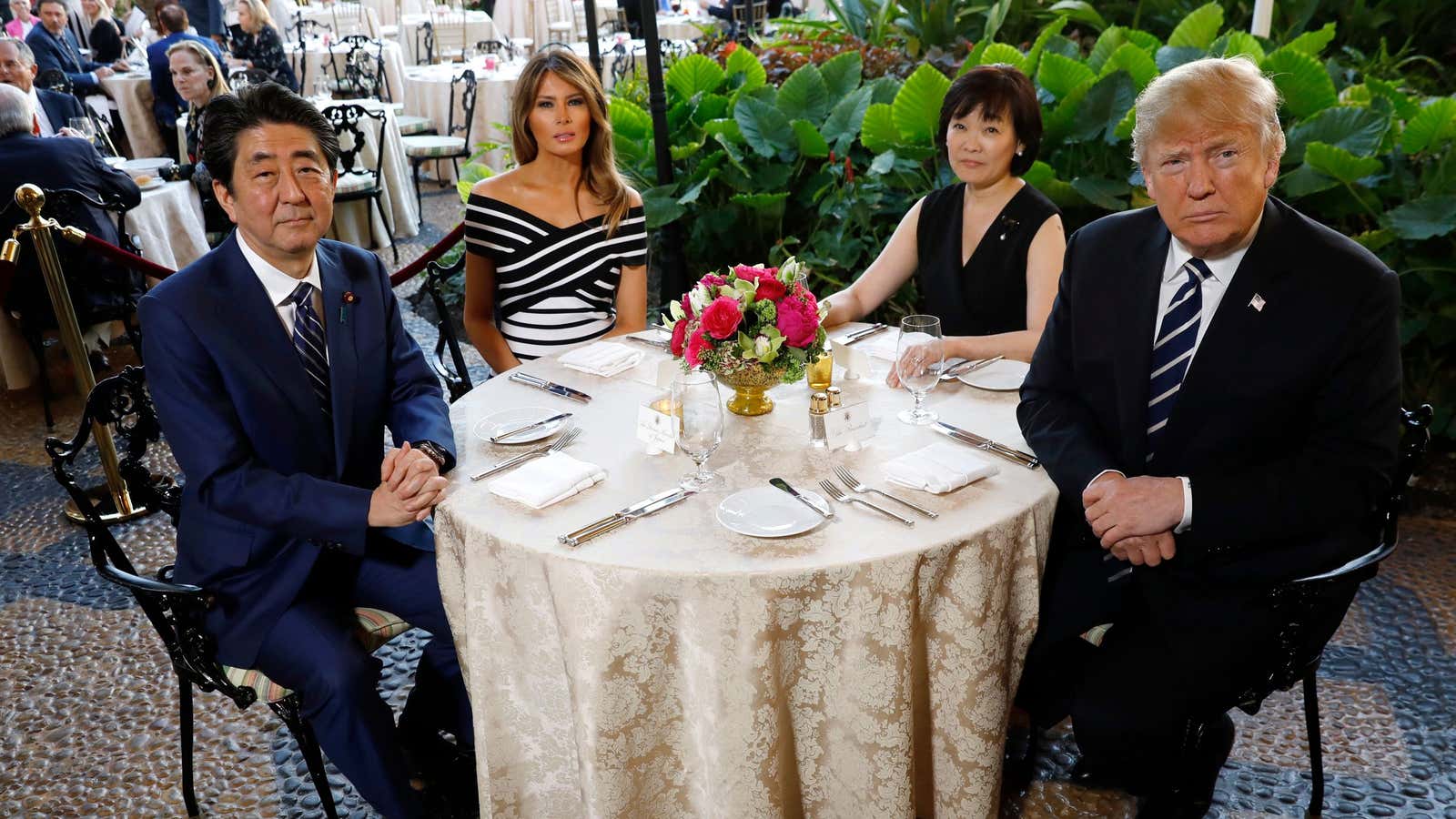Donald Trump’s very first meeting with Chinese leader Xi Jinping last year at the US president’s private Florida club was a highly anticipated event—Trump had promised a “tough” discussion after accusing Beijing of cheating on trade.
However, any talk of economics became largely overshadowed by an unexpected action from Trump. Over dessert—a “beautiful chocolate cake,” Trump later recounted—he told Xi that he was in the midst of bombing one of his allies. The US strikes on a Syrian airfield marked a stark reversal for Trump, who had endorsed a policy of non-intervention without congressional approval when Barack Obama was president.
Xi, Trump recalled, “paused for 10 seconds,” and then asked the interpreter to repeat what Trump had just said. Beijing already had vetoed Syria-related action at the UN several times. After the attack by the US, Beijing’s foreign ministry again said it opposed the use of force. The Xi-Trump relationship wasn’t ruined. But the focus certainly was moved away from US-China trade talks.
Abe learns how Xi might have felt…
Trump’s latest reveal, while meeting with Japan’s prime minister Shinzo Abe at his Florida club, suggests this scenario is becoming something of a presidential precedent: Invite a powerful foreign leader with a difficult agenda to Mar-a-Lago and upstage the meeting hours later. It’s yet another way that Trump is bringing his reality-show sensibilities to the presidency, and displaying an unwillingness to share the US media spotlight.
Yesterday (April 17), with Abe at his side, Trump told reporters the US had already had “direct talks at very high levels” with North Korea. Later, people close to the White House told reporters that CIA director Mike Pompeo had visited North Korea over Easter weekend, and spoke to Kim Jong-un directly. Trump confirmed the visit by tweet. US intelligence, not diplomacy, is leading the US’s race toward a Kim-Trump summit, advisors tell Quartz.
That’s could not have been welcome news to Abe.
…and then how America feels about its allies
After all, Pompeo testified to the US Senate—nearly two weeks after his secret meeting with Kim—that the main US goal in North Korea was to “develop an agreement with the North Korean leadership such that the North Korean leadership will step away from its efforts to hold America at risk with nuclear weapons, completely and verifiably.”
Pressed specifically about whether the goal was to push for denuclearization (a goal that would benefit Japan, South Korea, and the rest of the world, not just the US), Pompeo said: “We need to ensure that we continue to provide a strategic deterrence framework for our allies in the region: the South Koreans, the Japanese and others as well. But the purpose of the meeting is to address the threat to the United States.”
In other words, America first. That’s despite months of talks in which the Japanese government and the White House reaffirmed there was an “ironclad” commitment by the US to protect Japan.
Aligning himself closely with Trump has been a politically risky move for Abe, who faces controversy at home over a series of alleged corruption scandals. The US commitment to meet with Kim without Japan’s input was already a blow. Being told by the US president—while a guest in one of his homes—that these meetings have been underway can only make things worse.
